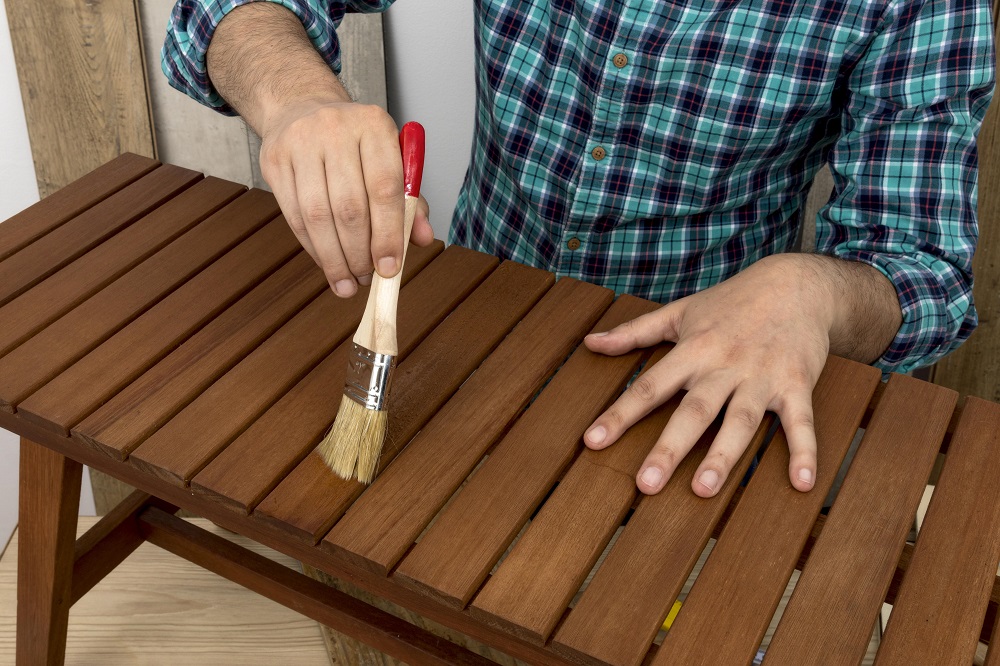The natural beauty of wood may be preserved and enhanced with polyurethane wood finishes. Water-based and oil-based polyurethane wood treatments are the two main varieties available, nevertheless. In this article, we’ll compare and contrast these two types of finishes so you can choose which is best for your upcoming woodworking project.
With Water Base
For individuals who want a finish that dries rapidly and has little odour or toxicity, water-based PU wood finish is a popular option. Many woodworkers find that this kind of finish is a useful alternative because it is simple to use and clean up. Water-based coatings are also very durable and stain- and scratch-resistant.
With Oil Base
For those seeking a finish that delivers the best durability and protection, oil-based polyurethane wood finish is a popular option. By producing a deep, rich surface, this style of finish is renowned for its capacity to highlight the inherent beauty of wood. Water, scratches, and stains cannot penetrate oil-based coatings.
Oil-based and Water-Based Finishes: Differences
Drying times are one of the key distinctions between water-based and oil-based wood treatments. Oil-based finishes might take up to 24 hours to dry, but water-based finishes dry more quickly. Their degree of toxicity and odour are other differences. Oil-based finishes are more hazardous and have higher levels of odour, making water-based finishes a safer alternative for people with respiratory problems.
The best PU finish to use
It’s crucial to take your project’s unique requirements into account while selecting. Water-based polyurethane can be the best option for you if you want a finish that dries rapidly and has little odour or toxicity. Oil-based polyurethane can be the preferable choice if you require a finish that accentuates the inherent beauty of wood while providing enhanced durability and protection.
Aesthetics and colour
The finish’s appearance and colour should also be taken into account while choosing. The amber tint of oil-based polyurethane treatments can intensify the colour of the wood and give it a warm, organic aspect. Contrarily, water-based treatments provide a transparent finish that preserves the wood’s natural colour. A water-based treatment would be the preferable choice if you want to preserve the wood’s natural colour. An oil-based finish can be the best option if you like a richer, deeper appearance.
Upkeep and refurbishing
The upkeep and recoating of the finish are also crucial factors. Both oil-based and water-based polyurethane wood treatments need upkeep to maintain their wonderful looks. Oil-based coatings don’t need to be sanded between applications, making them easier to recoat than water-based finishes. Water-based coatings could necessitate more time-consuming and difficult prepping and sanding before recoating.
Impact on the Environment
Finally, it’s crucial to think about how the finish you select will affect the environment. Due to their lower VOC (volatile organic compound) levels than oil-based polyurethane finishes, water-based polyurethane coatings generally have a lesser negative environmental impact. Chemicals called VOCs have the potential to harm human health and contribute to air pollution. A water-based polyurethane might be a better option if you’re worried about the finish’s influence on the environment.
Conclusion The natural beauty of wood may be preserved and enhanced with polyurethane wood finishes. It is crucial to take your project’s unique requirements into account when deciding between water-based and oil-based finishes. It ultimately comes down to personal opinion and the requirements of your project because all finishes have advantages. Your woodworking project will look fantastic and last for many years if you choose the correct PU finish.

